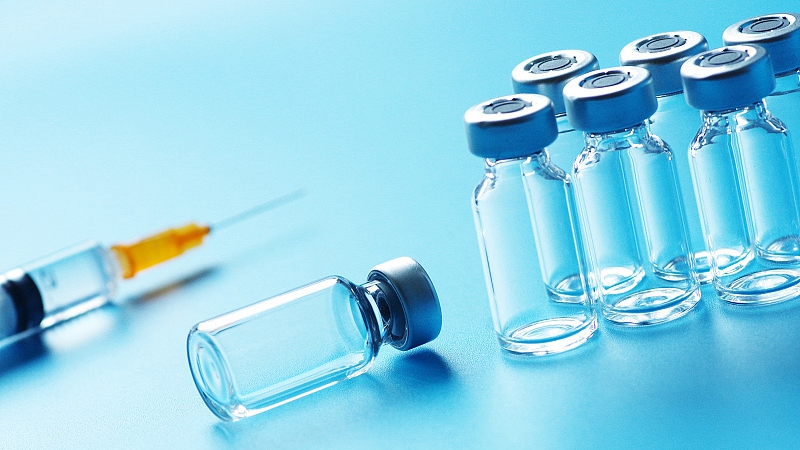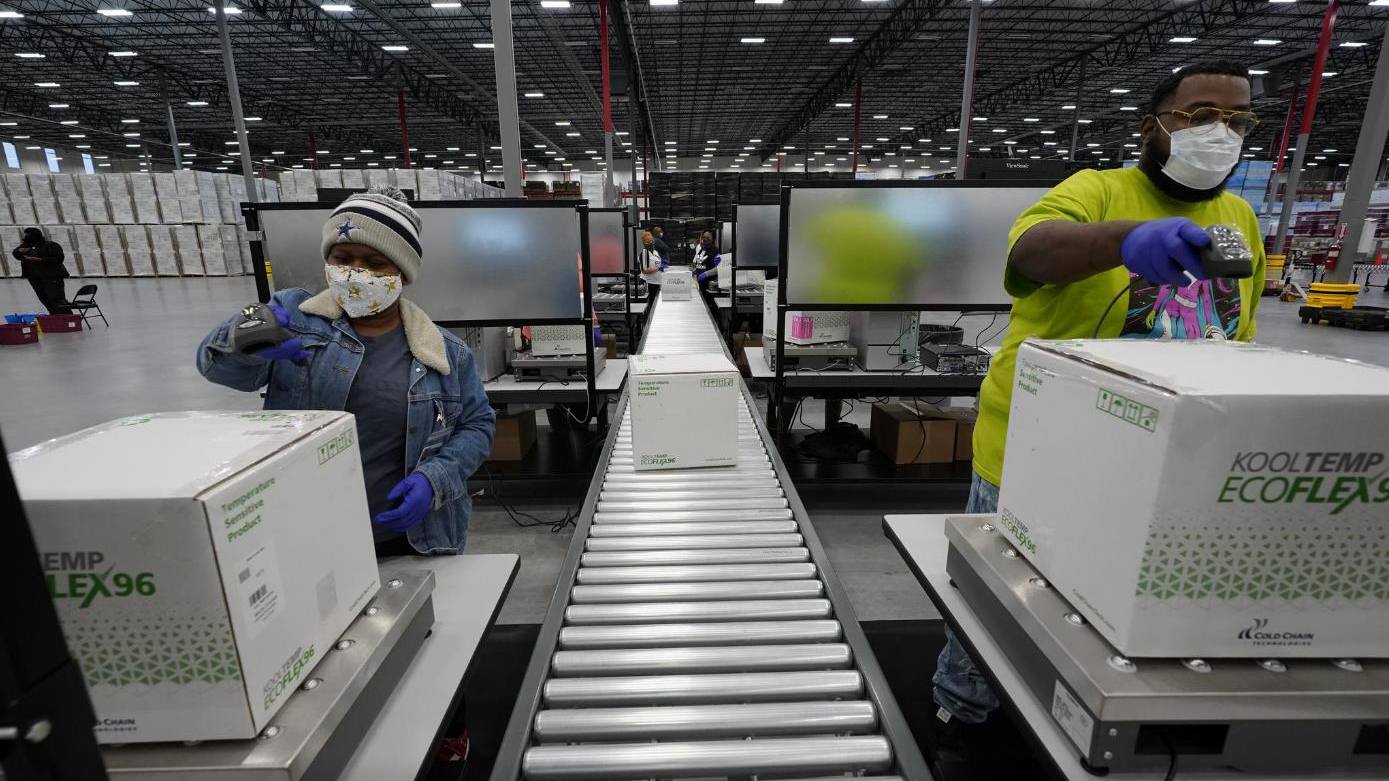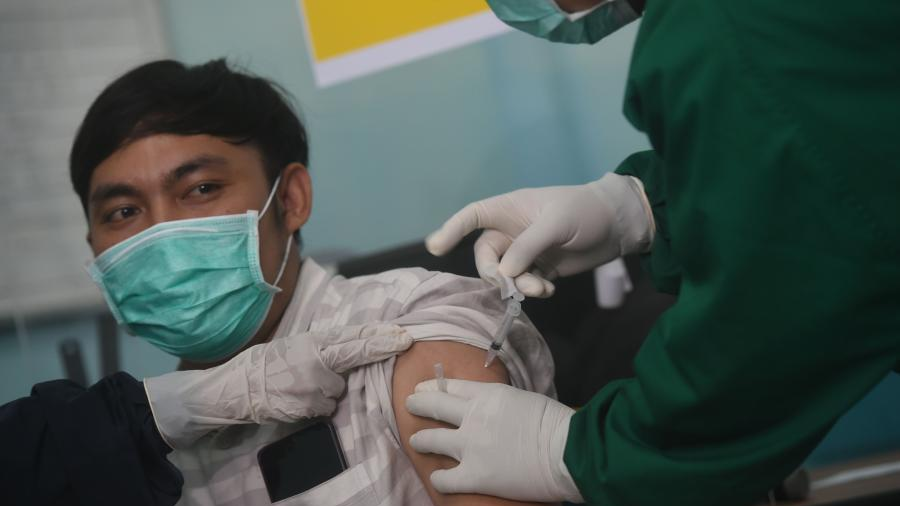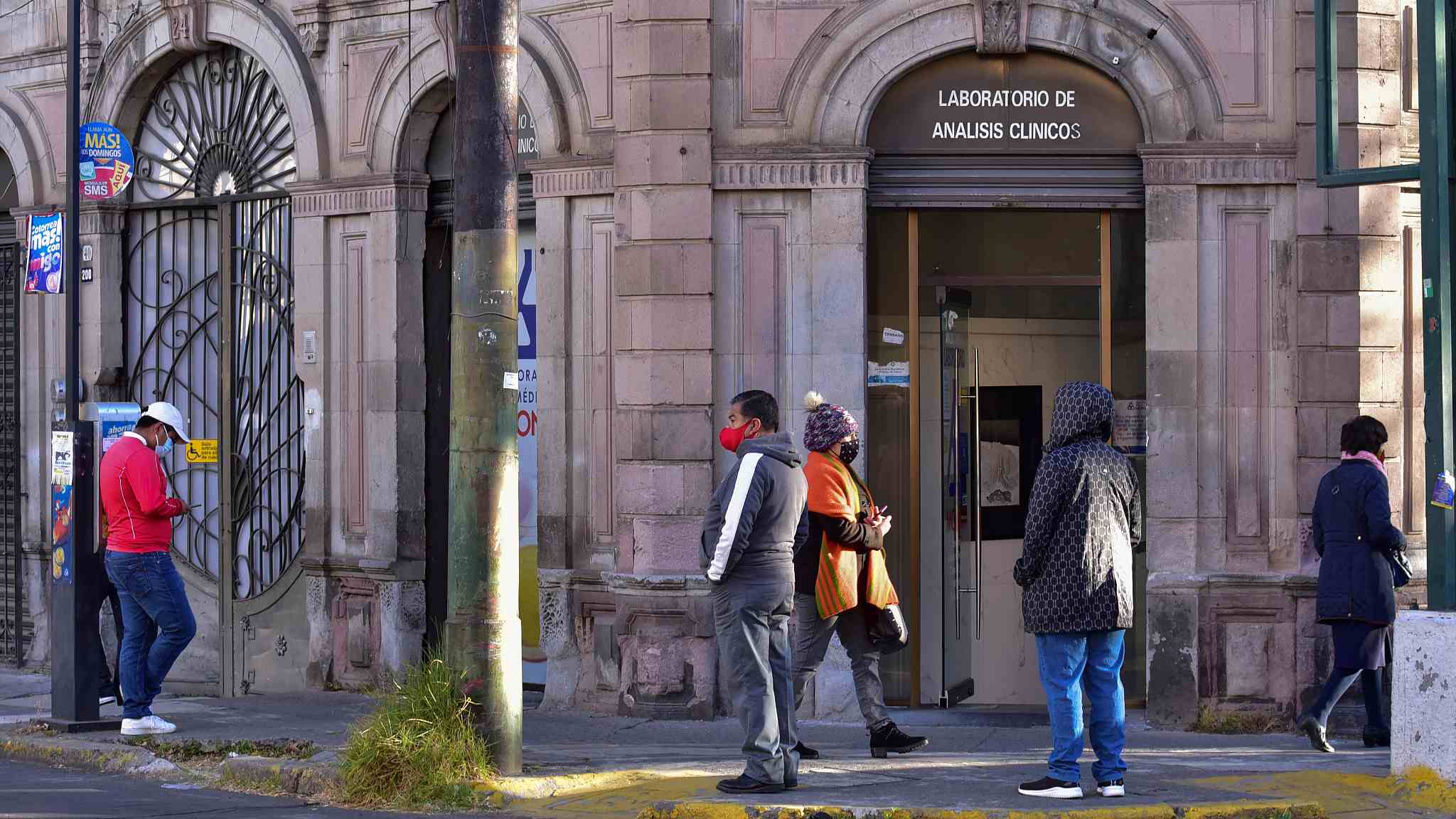
COVID-19 vaccines are now among the world's most precious commodities, especially if you live in a developing nation.
By the reckoning of the international charity Oxfam, rich nations have vaccinated their citizens against the coronavirus at a rate of one person per second over the past month.
Some poor countries have not managed to deliver a single jab. In fact, World Trade Organization (WTO) head Ngozi Okonjo-Iweala said on Tuesday that around 130 are still waiting for vaccines.
Oxfam was adding its voice on Wednesday (March 10) to call for wealthy WTO member nations to withdraw their opposition to waiving intellectual property rules for COVID-19 vaccines until the pandemic is under control.
The International Federation of Pharmaceutical Manufacturers and Associations (IFPMA) – which is made mostly of Western companies – says the estimated global demand for vaccines in 2021 is between 10 and 14 billion doses.
Actual production will fall well short of current trends.
According to statistics cited by data company Statista, the U.S. can produce almost 4.7 billion COVID-19 vaccine doses, and India more than 3 billion possible doses. Not previously a big player in the vaccine export market, China has pledged to manufacture more than one billion doses.

Boxes containing the Moderna COVID-19 vaccine are prepared for shipment at the McKesson distribution center in Olive Branch, Mississippi, U.S., December 20, 2020. /Reuters
Boxes containing the Moderna COVID-19 vaccine are prepared for shipment at the McKesson distribution center in Olive Branch, Mississippi, U.S., December 20, 2020. /Reuters
Britain, Russia, Germany and South Korea are also among established manufacturing centers.
More than 50 nations, including the entire Africa Group and Least-Developed Country Group at the WTO, have backed the proposed waiver that would allow countries globally to collaborate on vaccine development and distribution without being unduly hampered by IP restrictions.
In a document released on Tuesday at a vaccine production conference, the IFPMA pointed to the monumental challenges of scaling up production from zero to numbers far outstripping pre-COVID-19 vaccine manufacturing capacity that was 3.5 billion doses per year or 5 billion if seasonal flu shots are included.
The pressure is beginning to tell.
"What is clear is that our industry partners have risen to the occasion in developing safe and effective vaccines but now are struggling to ensure they have all the materials they need to deliver them," Richard Hatchett, the CEO of the Coalition for Epidemic Preparedness Innovations, was quoted as saying in a news release at the end of the conference.
"We must urgently work together to prevent these shortages from slowing the delivery of the vaccines we need in order to end the pandemic."

A health worker receives a dose of China's Sinovac COVID-19 vaccine at a community health center in South Tangerang, Banten Province, Indonesia, January 15, 2021. /Xinhua
A health worker receives a dose of China's Sinovac COVID-19 vaccine at a community health center in South Tangerang, Banten Province, Indonesia, January 15, 2021. /Xinhua
The need for global cooperation had always seemed a no-brainer as the pandemic took root globally. But the United States, the EU, and their rich partners rushed to secure the first supplies for their populations. Some ordered much more than they need.
Many middle- and low-income nations turned to China, India, and Russia as the West turned inward.
Okonjo-Iweala, who took up her post this month, called for action on boosting vaccine production in developing countries in a speech at the two-day conference organized by Chatham House.
"The fact is that each additional day the vaccine shortage continues, people will pay with their lives," she said.
Reuters also reported on Tuesday that seven WTO member nations had urged her to hold talks with vaccine developers and manufacturers on scaling up production.
Western governments have balked at waiving some IP rights on the grounds that doing so would undermine the expensive risks that companies make in vaccine research.
The WTO was due to take up the matter again on Wednesday and Thursday (March 10-11).
China has always said that it would treat the COVID-19 vaccines it develops as a public good.
By the end of February, it had provided vaccine assistance to 69 countries and two international organizations, Guo Weimin, spokesperson for the fourth session of the 13th National Committee of the Chinese People's Political Consultative Conference, told a news conference last week.

People maintain social distancing to enter a lab in Mexico, January 22, 2021. Mexico is turning to China to help fill a vaccine shortfall with an order for 22 million doses, the government of the Central American nation has said. /CFP
People maintain social distancing to enter a lab in Mexico, January 22, 2021. Mexico is turning to China to help fill a vaccine shortfall with an order for 22 million doses, the government of the Central American nation has said. /CFP
Russia's Sputnik V vaccine is also gaining traction and has been delivered to more than 14 nations, according to data from the analytics firm Airfinity. It has also received authorization in more than 50 countries.
India, one of the world's largest drugmakers, has provided 5.6 million doses of coronavirus vaccines, mostly the Oxford-AstraZeneca variety developed in the UK, under grant assistance to more than 60 countries, with another 100 million doses on commercial terms, the Ministry of External Affairs (MEA) has said.
In the past few days, civil society leaders in Australia and Ireland have urged their governments separately to support the WTO waiver proposal.
They include the heads of the Australian Council of Trade Unions, the Australian Council for International Development, and the Irish charity Trócaire, which also took aim at the European Union.
In the statement by Oxfam International, Executive Director Gabriela Bucher said, "By allowing a small group of pharmaceutical companies to decide who lives and who dies, rich nations are prolonging this unprecedented global health emergency and putting countless more lives on the line. At this crucial time, developing countries need support – not opposition."
One vehicle through which countries could help is the COVAX program, created to provide vaccines for poor and middle-income countries. After a slow start, the alliance said earlier this month that it planned to deliver 237 million doses of AstraZeneca's COVID-19 vaccine to 142 countries by the end of May.
But more needs to be done, and fast.

